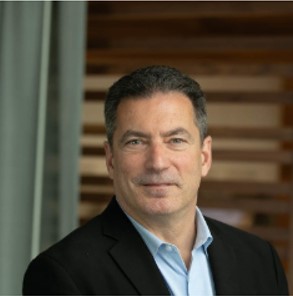Strategy
Ownership Takes Center Stage At Cresset

This publication talks to the CEO of Cresset Asset Management about how its approach to ownership aligns investor interest with those of the firm - addressing the key issue of achieving independent wealth advice.
In all the debate about what makes a wealth management firm truly independent, a recurring theme is the principle of ownership. Terms such as “skin in the game” or “alignment of interest” come up frequently. If people own something, the chances are that they will look after it.
And the issue of how to embed ownership at the heart of a business is something that Michael Cole cares about. He is chief executive of Cresset Asset Management, which is a part of Cresset Capital Management. Cresset was built by private capital entrepreneurs Avy Stein and Eric Becker who wanted a wealth business that wasn’t riven by conflicts of interest. It’s a familiar tale of business creativity – if you cannot find what you want, build it yourself.
Cole is keen on the idea that new clients who invest with Cresset can also get a piece of the ownership action at the firm – something he says that makes the operation different.
“New clients here that want to be owners….they can have a rooting in this firm,” he told Family Wealth Report recently. “All [Cresset] employees are owners. Everyone here has the ability to create ownership,” he said. The actual creators of the Cresset business are also clients of its wealth management services.
Clients have the opportunity to purchase a profit interest in the firm, which provides a percentage of the profits as they become available and are distributed.
By making new clients owners of the actual business structure, it enables the wealth management business – which is expensive to build - to be viable and scalable, Cole said. “We are giving people a seat at the table,” he continued.
“We are also bringing in employees that represent some of the best talent in the industry. They are energized because as owners they operate differently,” Cole continued. “We are hiring people with an owner’s and architect’s attitude.”
Independence – what is it?
The meaning of independence is contested. To coin a phrase, it is
not always easy to define but you know it when you see it. The
term is thrown around a lot and definitions of independent advice
take on almost theological proportions at times, particularly
when regulatory issues come into play. The term is sometimes
given to mean that the advisor’s remuneration does not depend on
how many services or products he or she sells, leading to the
idea that an advisory fee promotes independence. Others, such as
WE Family Offices, for example, say independence means
not selling any products/services to clients, whatever the
revenue model, period. Another argument is that such firms should
be privately owned rather than listed on the stock market, to
avoid the pressures of hitting earnings targets. But even here,
this can be complicated. It is sometimes claimed that wealth
management firms that are owned by private equity houses have a
potential pressure on their independence because the PE houses
want to boost valuations prior to an exit.
The issue became such a talking point among the Family Wealth Report readership community that members of this publication’s editorial advisory board hashed out what independence meant. It is an evolving field.
Rapid expansion
Cole argues that Cresset’s business philosophy is creating waves
and attracting attention.
“I’ve been on board here for only nine months and it’s been a fast ride. We have gone from one office in Chicago and 22 people to more than 100 people in six offices in that time,” he continued.
“The reason we have been able to hire extraordinary talent is that there’s a lot of dissatisfaction within the traditional wealth management industry. We believe we have tapped into that and been able to attract a lot of talent,” he said.
New business models have a wind in their back, with an estimated $30 trillion of wealth due to change hands in the next few years as Baby Boomers pass on. Cole cited a Capstone study showing that among 6,000 family-owned firms in the US, about two-thirds of the chief executives are in their late fifties or higher, creating a wealth/business transition challenge in the near future.
“There is an aging leadership…and some of the highest private equity valuations in history. And then, add in all this technology disruption that is impacting private held businesses. These issues motivate a lot of people to transition from being entrepreneurs to what I call `capentrepreneurs‘,” he said.
Changing times
Cole argues that the changing nature of modern business means
that wealth management models must adapt accordingly.
For example, owners of businesses are moving their firms into public markets at a later stage than, say, in the 1990s and that means demand for private capital markets expertise is going to continue rising, he said.
“The necessity and opportunity to take companies public is happening much later in the capital cycle for a variety of reasons. There is still opportunity to create ownership and equity interest and where equity remains private for much longer. We at Cresset help clients by accessing private investment opportunities with deep expertise and experience, along with a very strong, accessible ecosystem,” he said.
Cole takes the view that the wealth management sector continues to bifurcate: mass-affluent/lower-HNW clients will be served by technology with certain functions industrialized, while more high-touch, labor-intensive services will focus more on the higher-HNW and ultra-HNW ends of the spectrum.
(Cole recently spoke at this news service's fintech and family office forum in New York. For a report, see here.)
